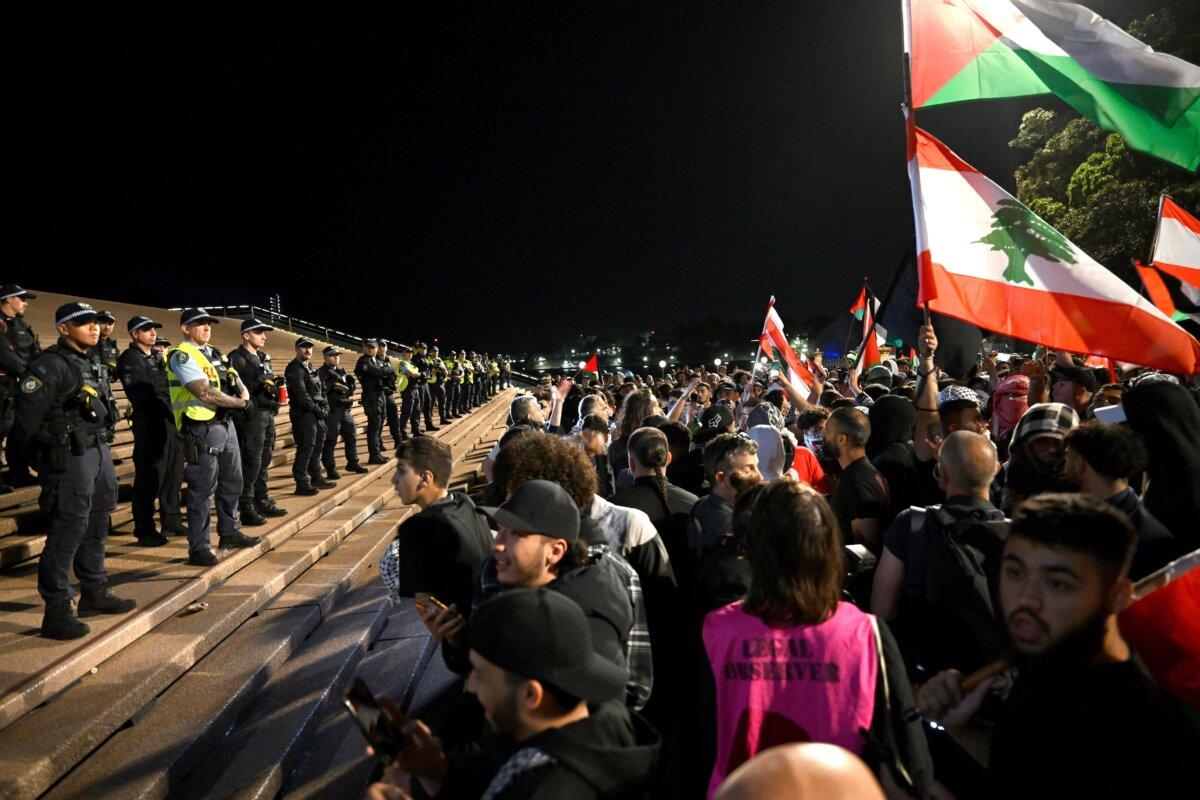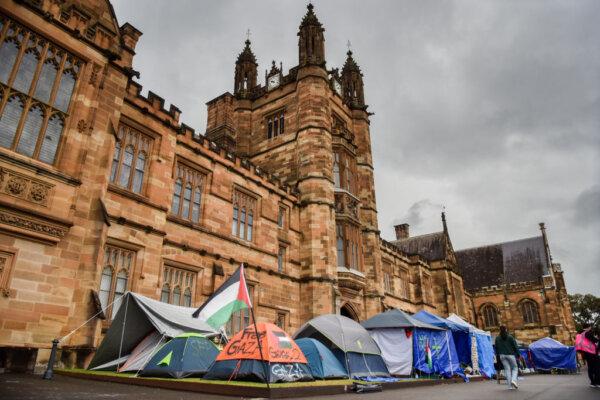An elected member of Parliament is not a mere delegate; rather, they are chosen to attentively consider all perspectives in a debate and offer a thoughtful judgment on issues at hand.
Commentary
What has become of the Right faction of the New South Wales (NSW) Labor Party?
For many years, it was known for housing principled lawmakers who prioritized the nation’s welfare over personal ambitions. Though ambition was not absent, it was driven by loftier goals.
Unlike Victoria, the NSW Labor Party remained intact and did not split in the 1950s.
The historic influence of Christians—particularly Catholics—served as a powerful force in tempering the radical left, leading the party to hold government in the state for a significant period since then and making substantial contributions to Labor’s success nationally.
However, this principled stance appears to have been compromised by recent events in Israel, particularly the terrorist attack carried out by Hamas last October.
Countless innocent individuals were killed and many others abducted, with 134 men, women, and children still held captive.
These events led to displays of celebration by large groups of Palestinian supporters, particularly at the Sydney Opera House and other city centers. Subsequent protests erupted at various universities, accompanied by ongoing demonstrations.
Supporters made statements in favor of the killings and abductions.
One particularly egregious statement came from Sydney Sheik Ibrehim Dadoun, who was captured on video telling a crowd: “I’m smiling and I’m happy. I’m elated. It’s a day of courage. It’s a day of pride. It’s a day of victory. This is the day we’ve been waiting for!”
While many national political figures have unequivocally denounced anti-Semitic remarks, some have shown hesitance.
This group includes several members of the NSW Labor Right representing Sydney electorates in the Australian Parliament, such as Ministers Tony Burke, Chris Bowen, and Jason Clare.
Mr. Burke did not condemn the preacher’s statements in his electorate in the days following their release. Mr. Bowen simply stated his support for the prime minister’s stance.

More recently, Mr. Clare claimed ignorance of the meaning behind the phrase “from the river to the sea,” a pro-Palestinian chant advocating for the eradication of Israel; in other words, the elimination of the state of Israel located between the Jordan River and the Mediterranean Sea.
He suggested that the statement could have varying interpretations among different groups.
Prime Minister Anthony Albanese was compelled to reject Mr. Clare’s ambiguity, albeit after the failure of other MPs to denounce anti-Semitism.
Many individuals may conclude that the government was content to allow the ambiguity to persist, especially in local constituencies with substantial Muslim populations.
Leaders Must Lead, Not Follow
Their silence starkly contrasts with NSW Premier Chris Minns.
The Muslim population in several seats holds significant weight.
Mr. Bowen’s McMahon electorate comprises 14 percent Muslims; Mr. Burke’s Watson electorate has 25 percent, and Mr. Clare’s Blaxland electorate has 32 percent, as per the Muslim Votes Matter website.
An elected member of Parliament is not a mere delegate; rather, they are chosen to attentively consider all perspectives in a debate and offer a thoughtful judgment on issues at hand.
As Edmund Burke emphasized when addressing the electors of Bristol in 1774:
“Your representative owes you, not just his hard work, but his discernment; and he betrays, rather than serves you, if he sacrifices it to your opinion.
“To express an opinion is the right of all men; the opinion of constituents is a weighty and respectable one that a representative should always be glad to hear and should always take into serious consideration.
“But authoritative instructions; mandates issued that the member must blindly and unquestioningly obey, vote, and argue for, even if it goes against the clearest convictions of his judgment and conscience—these are concepts entirely foreign to the laws of this land, stemming from a fundamental misunderstanding of our constitution.
“You elect a member indeed, but once elected, he is not the member of Bristol [or Watson, McMahon, or Blaxland], but he is a member of parliament. If the local constituent holds an interest or forms a rash opinion evidently contrary to the overall good of the community, the member for that area should be just as far from any attempt to execute it as any other member would be.
“Silence and equivocation violate this fundamental principle of parliamentary democracy.
Unless members are willing to push back against the parochial directives and mandates of constituents, our system of government will be weakened.
The highly praised Australian multiculturalism is now posing a threat to the liberal principles that underlie our system of government.

I Know From Experience
I have firsthand experience with constituents who demand that I follow their mandates rather than rely on my own judgment.
For example, when I proposed a bill to revoke the Northern Territory’s euthanasia legislation, many of my constituents strongly disagreed. Despite facing opposition from an independent candidate in three elections, I stood firm in my belief that the existing law was flawed and hazardous.
The recent UK council elections serve as a stark reminder of the consequences of yielding to pressure from influential groups.
Several newly elected councillors, backed by a significant Muslim population, have made various demands on the national government and the UK opposition.
These demands range from recognizing the Palestinian state to imposing sanctions on companies operating in occupied territories, and even banning travel by Israeli politicians. Most of these demands have little to do with the responsibilities of local government.
The groups supporting these councillors have also threatened to target candidates in the next national election, illustrating the power dynamics at play.
It is crucial for parliamentarians to uphold their duty to exercise judgment rather than blindly following mandates set by pressure groups.
Instead of pandering to illiberal voices in their constituencies, members of parliament should unequivocally denounce anti-Semitism.
Views expressed in this article are solely the opinions of the author and may not necessarily reflect those of The Epoch Times.








